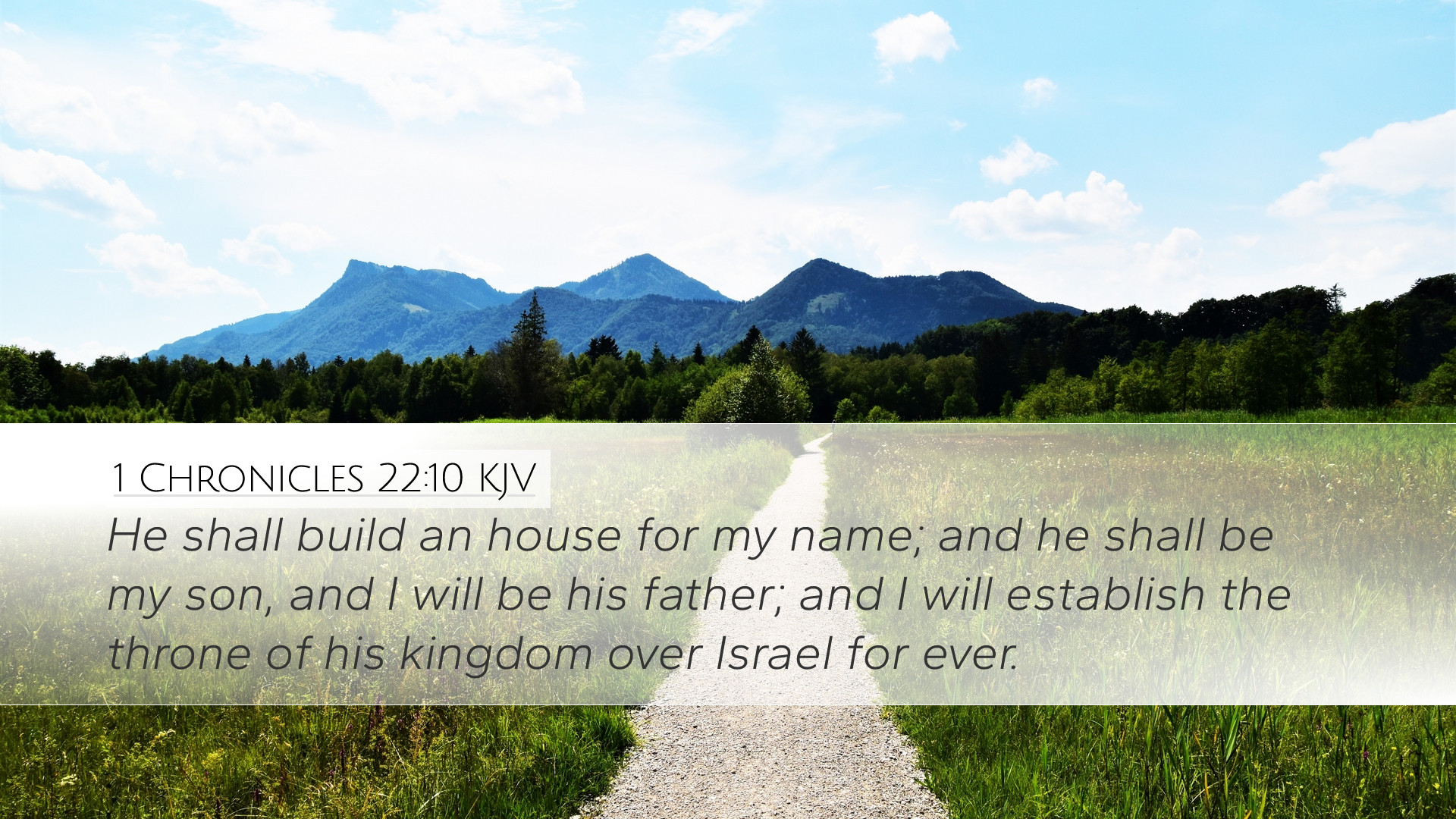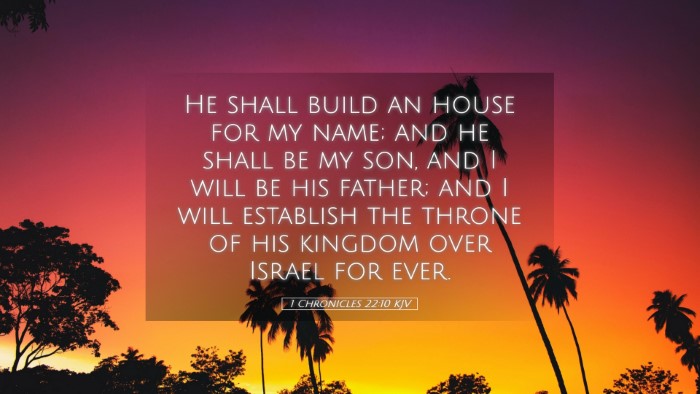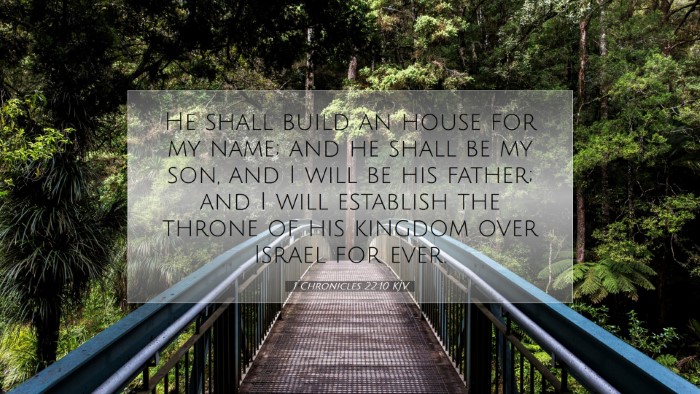Commentary on 1 Chronicles 22:10
"He shall build a house for my name; and he shall be my son, and I will be his father; and I will establish the throne of his kingdom over Israel for ever." - 1 Chronicles 22:10
Introduction
This verse encapsulates a pivotal moment in the narrative of Israel's history, emphasizing the divine purpose concerning Solomon's role as the builder of the temple.
Commentary Overview
The verse can be divided into three key components, each offering profound theological implications:
- The declaration of Solomon’s future role in building the temple.
- The personal relationship between God and Solomon.
- The promise of an enduring kingdom for Solomon.
Building the House for God's Name
“He shall build a house for my name.” This pronouncement by David anticipates the construction of the temple, recognizing its significance as the dwelling place of God among His people. Building a house for God is not merely a physical act; it symbolizes the establishment of a sacred place dedicated to worship and communion with the Lord.
Matthew Henry highlights the importance of a dedicated house where worship and sacrifices could take place, noting that it would serve as a focal point for the congregation's spiritual life. Adam Clarke elaborates on this by connecting it to the idea of God’s presence among His people, indicating that the temple would be where heaven meets earth, a vital aspect of Jewish faith.
The Father-Son Relationship
“He shall be my son, and I will be his father.” This intimate declaration denotes the special covenantal relationship between God and Solomon, evoking the theme of divine sonship. Albert Barnes explains that this phrase not only affirms Solomon's royal lineage but also signifies God's paternal guidance and protection over him.
This relationship suggests obligations on both sides: Solomon is to lead the people in faithfulness, while God commits to supporting him. The emphasis here foreshadows the ideal of a ruler who would align himself with divine principles and enact justice and righteousness within his kingdom.
Establishment of the Throne
“I will establish the throne of his kingdom over Israel for ever.” This promise speaks not only of the immediate future of Solomon’s reign but also conveys a long-lasting divine intention for the dynasty of David. Matthew Henry remarks that the assurance of an everlasting throne points towards the ultimate fulfillment in Christ, who is often referred to as the Son of David.
Albert Barnes adds that this kingdom's establishment transcends Solomon’s physical reign, implying the continuation of God’s kingdom ultimately fulfilled in the Messiah. The theological significance here underscores God’s sovereign plan for redemption through the lineage of David, ultimately leading to Jesus Christ, the ultimate King.
Theological Themes
The themes in 1 Chronicles 22:10 resonate with profound theological implications:
- Covenant Identity: The verse highlights the covenantal promise that is central to Israel’s identity as God’s chosen people.
- Divine Presence: The temple is central to experiencing God’s presence, serving as a vital marker of God’s relationship with His people.
- Messianic Fulfillment: This verse not only speaks to Solomon but also foreshadows the coming of the Messiah, enhancing its eternal significance.
Practical Applications
For pastors and theologians, this verse provides rich material for sermons and teachings:
- The importance of building a spiritual 'house' or community that reflects God’s name and glory.
- Encouragement to foster a personal and communal relationship with God, recognizing Him as our Father.
- A reminder of the hope we have in Christ’s eternal kingdom and the legacy we build as followers of Christ.
Conclusion
1 Chronicles 22:10 is a profound declaration of God’s plans for His people through Solomon. It encapsulates the essence of worship, identity, and divine promise. As we reflect upon this passage, we are invited to consider our own roles in building God's kingdom and living within the reality of His everlasting covenant.


